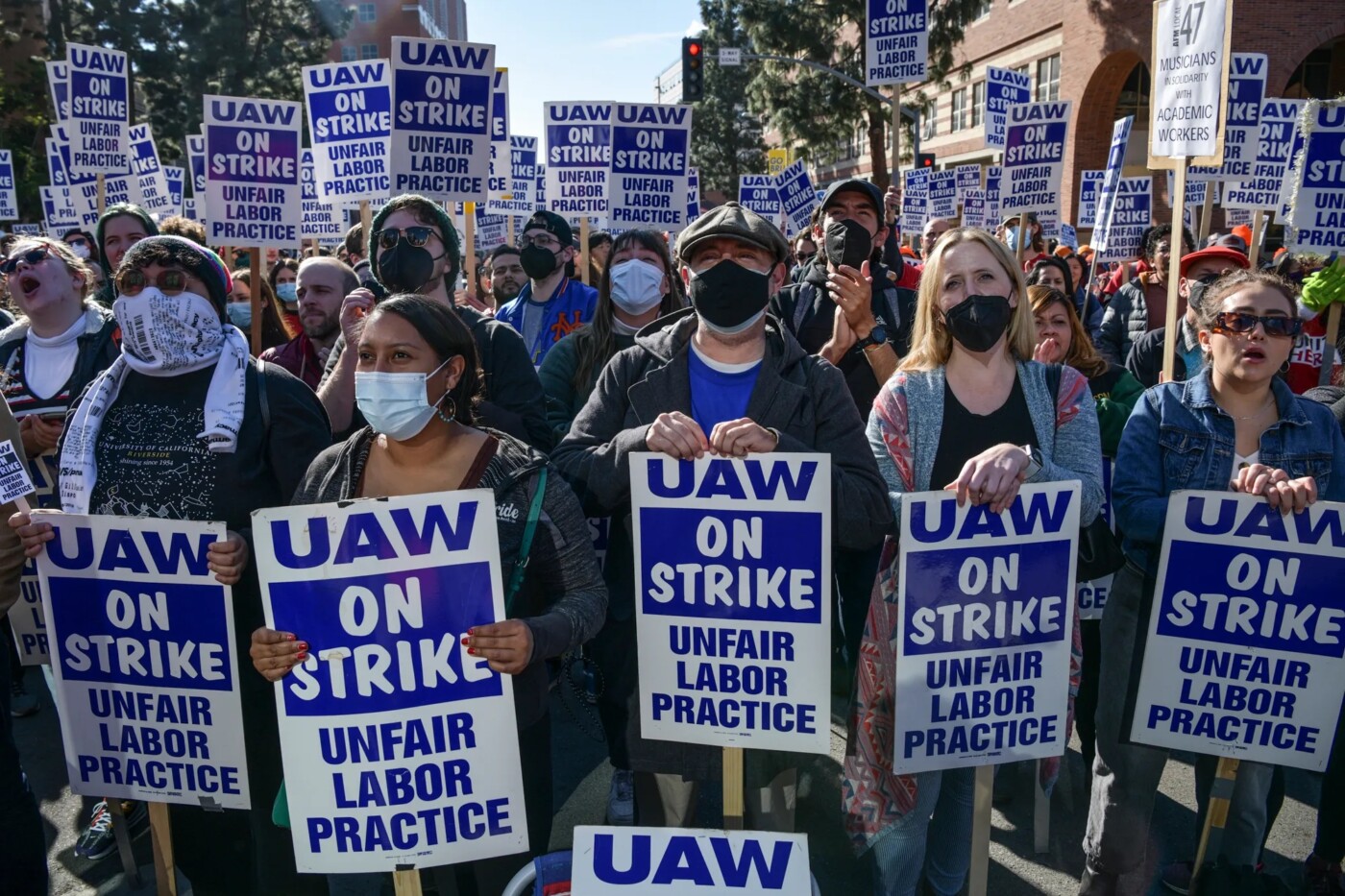The raises University of California graduate student workers won after last year’s historic work stoppage come with a big caveat: Those same UC workers will have to repay all the money they earned while they were on strike.
The UC “may not legally pay our employees or gift them funds if they did not provide a service to the institution,” wrote Ryan King, a spokesperson for The University of California Office of the President, in an email to CalMatters Friday afternoon. He cited state and federal rules that forbid the university from paying employees who didn’t work.
The UC system signaled this move was imminent in comments to CalMatters the first week of January.
But unions representing the striking workers allege that how the UC is going about this is all wrong. Rafael Jaime, president of the UAW 2865, the union of 19,000 teaching assistants, tutors and instructors, said the UC is violating state labor law by unilaterally docking pay without first allowing workers to review how much the university plans to claw back.
The UC is “well within their right to recover any money that was incorrectly paid out to workers who are on strike,” Jaime said in an interview Friday. “But there needs to be a fair process to make sure that workers aren’t left with additional hardships.”
Lawyers representing the three unions that struck last year filed an unfair labor practice charge against the UC on Thursday with the state’s Public Employment Relations Board. Core to the complaint is that the UC will deduct pay “without getting employee consent or first notifying employees of the actual deduction amounts before money was withheld from their paychecks,” the complaint read. “No other options were given to employees to ‘correct’ the payroll or otherwise review the University’s calculations before amounts would be withheld.”
Jaime said the UC previously ignored those requests.
The unfair labor practice charge follows a cease-and-desist demand lawyers for the unions sent to the UC on Jan. 18 that spelled out these grievances. That demand also noted that the UC could have stopped paying workers while they were on strike, rather than waiting a month to begin the process of docking their pay.
Any employee who withheld their labor — including faculty members who curtailed their teaching duties in solidarity with the striking workers — had to submit an attestation form to UC managers by Jan. 20, according to UC’s wage deduction policy. The form, a copy of which King provided to CalMatters, asked employees to calculate how many work hours they missed in the months in which the strike occurred.
The move affects at least the 12,000 postdoctoral and academic research workers who struck until Dec. 9 and the 36,000 graduate student workers who formally went back to work Dec. 23.
At this time, neither the UC nor the unions know how many workers will actually see their pay docked. “As campuses have just received the attestation notices and are in the process of reviewing them, we do not have a number to provide you at this time,” King wrote.
Jaime said part of the problem is the UC’s inconsistency in who’s receiving the attestation forms, calling the process “haphazard” with unclear instructions on the forms.
Not every union member went on strike. In some cases graduate researchers and teaching assistants feared retribution from their faculty supervisors. Others may have disagreed with the work stoppage itself, though the vast majority of unionized workers voted to approve the strike. The UC attestation letter also advises workers that if they took part in protests but still completed their work for the day, they won’t see their pay deducted.
The pay UC plans to claw back from workers won’t occur in a single paycheck but will instead be spread out through May, King wrote. “Evenly spreading any leave without pay out over three months will help mitigate the impacts on our employees,” he wrote.
So, with the UC going forward with its plans even as the unions are challenging them, what’s next? More limbo.
“We filed our charges and we’re waiting for the university,” Jaime said.
